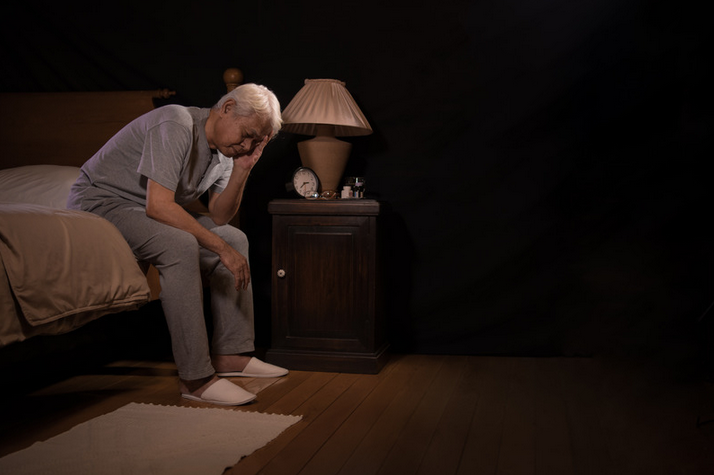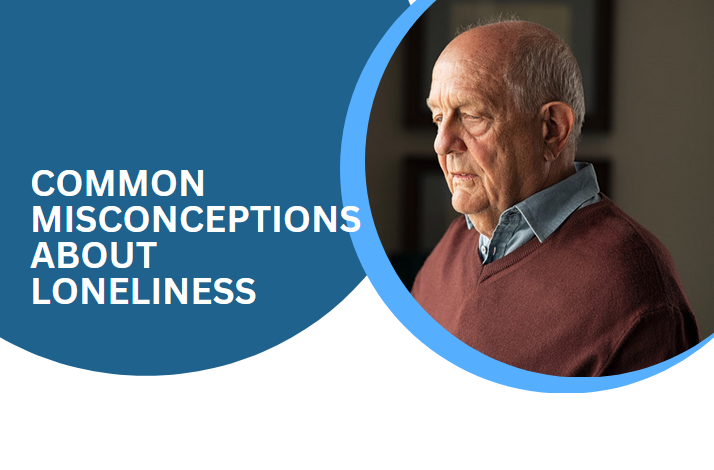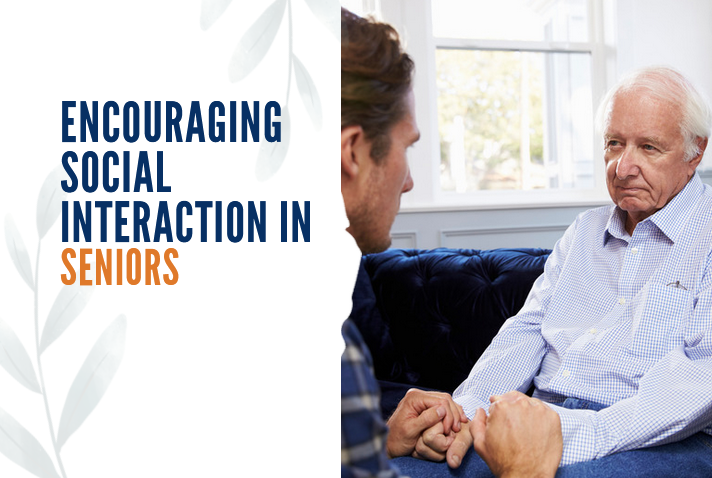Unspoken Sorrows: Checking for Signs of Loneliness in Elderly

As the sun sets on bustling lives, a quieter struggle often emerges among the elderly: loneliness. This unspoken sorrow can cast a shadow on their well-being, affecting their mental and physical health. In a world that thrives on connection, the elderly sometimes find themselves isolated, yearning for companionship that seems elusive. In this guide, we delve into the world of seniors and the profound impact of loneliness. From the hidden signs that betray their silent struggle to the resilience that can be fostered through understanding and connection, we embark on a journey to unveil the unspoken sorrows. By recognizing the signs of loneliness in elderly and fostering a community of support, we can rewrite the narrative of aging, ensuring that no one’s twilight years are shrouded in loneliness.
Understanding Loneliness in the Elderly
Loneliness is a universal human experience characterized by a deep sense of emptiness, disconnect, and isolation. It springs from a perceived deficiency in one’s social relationships and can occur even when surrounded by others. However, loneliness is a distinct predicament and shouldn’t be confused with depression, although they often overlap.
Depression is a common and serious psychological disorder that negatively affects how you feel, think, and handle daily activities. It manifests in a persistently sad or indifferent mood and a loss of interest in activities once enjoyed. While loneliness can trigger depression in older adults, it’s possible to feel lonely without being depressed and vice versa. The key distinction is that loneliness is a reaction to a situation (like feeling isolated), while depression can occur without any specific triggering incident.
As we delve deeper into the subject, it is crucial to comprehend why the elderly are particularly susceptible to feelings of loneliness.
Several unique factors contribute to this:
- Loss of Loved Ones: Elderly individuals frequently face the grief and isolation accompanying the death of loved ones and close friends, which can sow seeds of loneliness.
- Physical Limitations/Mobility Issues: Aging often brings about mobility issues and health challenges, limiting seniors’ participation in previous social activities, and leading to isolation and, subsequently, loneliness.
- Retirement: Retirement can give rise to feelings of unproductivity and uselessness with the abrupt cessation of regular work routines and professional interactions. This can make seniors feel disconnected from society.
- Living Alone: Once children move out and spouses pass away, many seniors end up living alone, enhancing the feeling of isolation and loneliness.
Elderly individuals often confront loneliness due to a constellation of factors unique to their life stage. The loss of a spouse or the passing of dear friends can lead to bereavement-induced loneliness. Moreover, physical constraints may curb their ability to participate in social engagements, inducing a sense of isolation and deepening feelings of loneliness.
The Impact of Loneliness on Health and Well-being

Loneliness is not merely a fleeting emotion; it’s a silent adversary that can erode physical and mental health. The repercussions of prolonged loneliness extend far beyond an emotional ache, leaving an indelible mark on an individual’s overall quality of life.
A. A Fraying Tapestry of Physical Health
Loneliness exacts a toll on physical health that is as palpable as insidious. The isolation that loneliness brings can lead to an increased risk of:
- Cardiovascular Issues: The stress of loneliness can contribute to elevated blood pressure and heart-related complications.
- Weakened Immune System: Chronic loneliness can compromise the immune system’s ability to ward off infections and illnesses.
- Inflammation: Loneliness is associated with increased levels of inflammation in the body, linked to various chronic diseases.
B. The Mental Quandary: Loneliness and Mental Well-being
Loneliness’s impact on mental well-being is profound, often plunging individuals into a cycle of emotional distress:
- Depression: Prolonged loneliness can fuel sadness, hopelessness, and a loss of interest in once-enjoyed activities.
- Anxiety: The isolation can intensify anxiety, leading to excessive worry and unease.
- Isolation Feedback Loop: Loneliness can create a cycle where negative emotions drive further isolation, exacerbating mental distress.
C. The Link to Cognitive Decline
Perhaps most strikingly, research suggests a significant connection between loneliness and cognitive decline. The brain’s intricate web relies on social engagement to stay vibrant. Loneliness disrupts this essential network, potentially accelerating cognitive deterioration and increasing the risk of conditions like dementia.
In the shadow of these effects, it becomes clear that the battle against loneliness is not just about companionship—it’s about safeguarding the essence of well-being. Addressing loneliness is not just a gesture of empathy; it’s a vital step toward holistic health and a brighter future.
Recognizing Signs of Loneliness in Elderly
Loneliness, often hidden beneath a brave facade, leaves behind subtle clues that speak volumes about an individual’s emotional state. Recognizing these signs of loneliness in elderly is the first step towards extending a helping hand to those silently battling their isolation.
A. Physical Indicators of Emotional Strain
- Changes in Appetite: A sudden loss of interest in meals or overeating may signal the emotional toll of loneliness, impacting eating habits.
- Sleep Disturbances: Loneliness can disrupt sleep patterns, leading to insomnia or excessive sleeping, both reflecting emotional unrest.
- Neglecting Personal Hygiene: A decline in self-care routines like grooming and cleanliness can indicate a waning sense of self-worth.
B. The Landscape of Emotional and Psychological Cues
- Persistent Sadness: Lingering feelings of sadness that persist beyond occasional blues can hint at underlying loneliness.
- Loss of Interest: An abrupt disinterest in once-enjoyed activities can suggest a disconnection from sources of joy and fulfillment.
- Low Self-esteem: Loneliness can erode self-esteem in seniors, leaving individuals unworthy of companionship and fostering self-doubt.
C. Behaviors as Whispers of Longing
- Withdrawal from Social Interactions: A sudden reluctance to engage in social gatherings or conversations may signify a yearning to avoid further emotional pain.
- Avoidance of Conversations: Dodging discussions about negative feelings and personal life can be a way of shielding vulnerability caused by loneliness.
- Decreased Participation: Diminished involvement in community activities, clubs, or events may point to a sense of detachment from the social sphere.
Recognizing these signs of loneliness in elderly is a vital compass in navigating the uncharted waters of elderly loneliness. Our ability to perceive these cues and extend a hand of understanding can make all the difference in easing the burden of isolation and kindling the warmth of companionship. As observers, friends, and family, it’s within our power to shine a light on the shadows of loneliness.
Common Misconceptions About Loneliness

Loneliness, a complex human emotion, often gets misunderstood, leading to an array of misconceptions. To understand and effectively combat loneliness, debunking misconceptions about loneliness is crucial.
- Loneliness Equates to Physical Solitude: Loneliness isn’t about the physical absence of people but about feeling emotionally disconnected even when among a crowd.
- Introversion Implies Loneliness: Introversion is a preference, not a state of loneliness. Introverts choose solitude but don’t necessarily feel lonely.
- Loneliness is Age-Specific: Although common among the elderly, loneliness is not age-specific. It can strike anyone at any age.
- Loneliness is a Fleeting Experience: While it can be transient for some, loneliness can be a chronic, enduring experience for others.
- Social Media Reduces Loneliness: Excessive use of social media can potentially enhance feelings of isolation and loneliness rather than alleviate them.
Unveiling these myths is the first stride towards a deeper, more empathic understanding of loneliness.
Addressing Loneliness: How to Offer Support and Encouragement
There’s no denying the emotional turmoil that loneliness can incite. Still, it’s a pervasive emotion experienced by many—especially among the elderly. Tackling loneliness warrants more than just understanding its causes; it requires actionable measures that offer support and encouragement. Below are a few strategies to address loneliness:
1. Be Attentive to Signs of Loneliness in Elderly
Loneliness isn’t always easily discernible, as individuals may try to hide their feelings. Changes in mood, appetite, sleep, or withdrawal from loved ones and activities they once enjoyed could indicate loneliness. Being vigilant to these changes can help identify loneliness before it escalates.
2. Encourage Social Interaction
Encourage the person feeling lonely to participate in social activities, such as joining local clubs, participating in community events, or volunteering. This not only offers the opportunity to interact with others but also instills a sense of purpose and belonging.
3. Foster Communication
Ensure open, regular communication with the individual suffering from loneliness. Something as simple as a phone call, a handwritten letter, or a visit can make a difference. It helps them realize that they are cared for and valued.
4. Promote Healthy Habits
Encourage them to live a healthy lifestyle. Regular physical activity, a balanced diet, and good sleep hygiene can often help improve mood, enhance overall well-being, and ward off feelings of loneliness.
5. Offer Professional Help
Don’t hesitate to seek professional help if needed. Therapists, counselors, and support groups can provide valuable tools and techniques to manage loneliness.
The Ripple Effect of Connection
The impact of forging meaningful connections goes beyond individual well-being; it ripples through families and communities. When we prioritize companionship and create spaces for the elderly to thrive socially, we foster an environment where every person’s twilight years are bathed in warmth and fulfillment.
Encouraging Social Interaction in Seniors

Effectively encouraging elderly people to participate in social activities can greatly enhance their mental well-being and combat feelings of loneliness. As a primary caregiver, using the right words to motivate them is paramount in fostering social interaction.
- Acknowledge Their Feelings: “I understand it might feel tough to start, but meeting others can help you feel more connected and less lonely.”
- Promote Benefits of Activities: Emphasize the positive aspects by saying, “Joining these clubs or classes can give a senior a sense of purpose and belonging.”
- Ensure Their Importance in Social Gatherings: Reinforce their value by saying, “Your presence at the family gathering will make it more special. We all love your company.”
- Highlight Shared Interests: Motivate interaction by pointing out, “You might find people with similar interests in these community events. It’s a great way to share what you love.”
- Promote Meaningful Contribution: Comment on their potential impact, “Your experience and wisdom can greatly benefit others in volunteering tasks. It’s an amazing way to give back.”
The key goal of a caregiver is to provide reassurance, emphasize benefits, and communicate the importance of the elderly in society, motivating them towards more social interactions.
Final Thoughts
Recognizing signs of loneliness in elderly is vital, fostering not only their emotional health but also significantly contributing to mutual solidarity in our community. Interlacing social connections and encouraging regular interactions can dramatically boost their sense of self-worth and purpose. However, it’s evident that there may be instances where your physical presence won’t be possible. In these circumstances, considering the engagement of a compassionate and reliable companion for your loved one can be an incredibly supportive step. Serenity Senior Care offers indispensable services, primed to understand and meet the unique requirements of the elderly. We’re here to help combat their loneliness and elevate their overall quality of life. Please don’t hesitate to reach out—we’re here to help.


